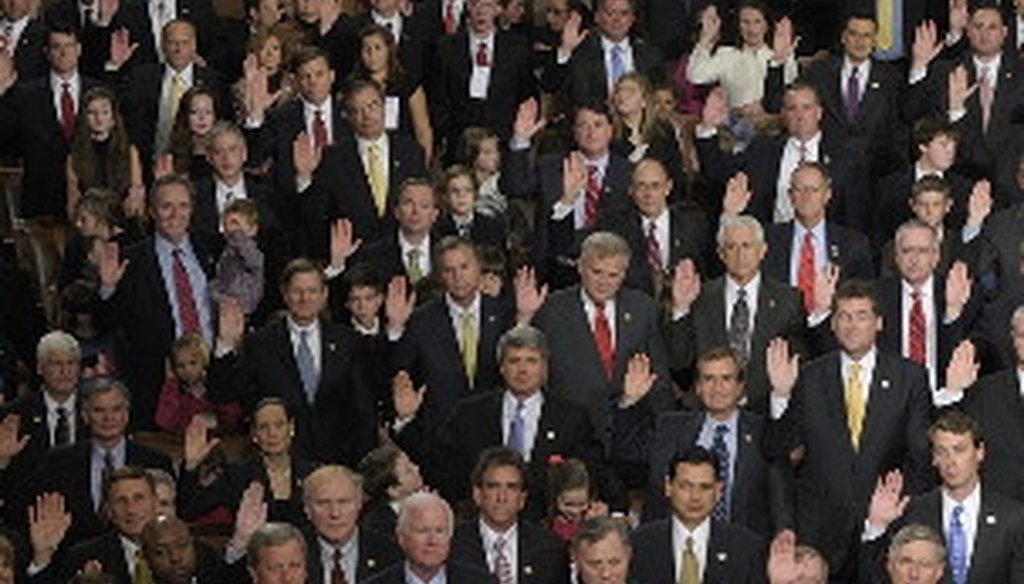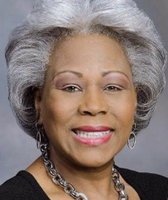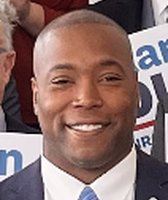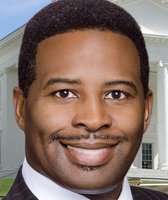Get PolitiFact in your inbox.

Congress, with support from Virginia members, has raised the debt limit nine times since 2002.
The federal government has hit its debt limit, and the political brinkmanship in Washington is nearing code red.
The United States reached the $14.3 trillion cap on Monday. U.S. Treasury Secretary Timothy Geithner has said he can use bookkeeping maneuvers to keep the government afloat through Aug. 2. But if Congress does not raise the debt limit by then, Geithner warns that the U.S. will face a disastrous choice between defaulting on loans or maiming popular government programs.
Republicans are refusing to raise tax rates and say they won’t increase the limit unless the Obama administration agrees to major spending cuts and long-term debt reduction. Many Democrats say the GOP’s proposals will deeply cut Medicare and Social Security benefits for those now younger than 55.
There’s plenty of partisan finger-pointing over who is to blame for the addiction to borrowing. Congress has raised the debt limit nine times since 2002 when the cap was $5.7 trillion. We thought it would be interesting to look at the voting records of Virginia’s congressional delegation on the measures.
Virginia has 11 representatives and two senators. It’s three freshmen representatives -- Republicans Scott Rigell, 2nd District; Robert Hurt, 5th District; and Morgan Griffith, 9th District -- have yet to face a debt limit vote.
Of the 10 more senior members of delegation, only one can accurately say he has never supported a debt limit increase. Rep. Rob Wittman, R-1st, has voted against each of four such bills that have come to the floor since his election in 2007.
In contrast, Sen. Mark Warner and Rep. Gerry Connolly are the only ones who have consistently voted for raising the debt limit. Both Democrats have voted twice to increase borrowing capacity since joining Congress in 2009.
The rest of the delegation largely followed partisan patterns in their votes on debt limits since 2000. Republicans mostly backed increases proposed during the Bush administration and Democrats usually opposed them.
The major exception was the 2008 vote creating the created the Troubled Asset Relief Program to bail out financial institutions that were sinking under subprime mortgages. TARP had bipartisan support and opposition in the delegation.
Virginia’s congressional Democrats have unanimously backed two debt limit increases offered Since President Obama came to office in January 2009, including one incorporated in the Stimulus bill in 2009. Republicans voted unanimously against the two measures.
Here’s a rundown of the record of each Virginia congressman who has voted on bills that raised the debt limit.
Rep. Rob Wittman, R-1st: 4 nays.
Rep. Bobb Scott, D-3rd: 4 ayes, 5 nays.
Rep. Randy Forbes, R-4th: 4 ayes, 5 nays.
Rep. Bob Goodlatte, R-6th: 4 ayes, 5 nays.
Rep. Eric Cantor, R-7th: 5 ayes, 4 nays.
Rep. Jim Moran, R-8th: 5 ayes, 4 nays.
Rep. Frank Wolk, R-10th: 5 ayes, 4 nays.
Rep. Gerry Connolly, R-11th: 2 ayes.
Sen. Jim Webb, D: 4 ayes, 1 nay.
Sen. Mark Warner, D: 2 ayes.
What about former Sen. George Allen who is running for the Senate next year? The Republican hopes to reclaim the seat he lost to Webb in 2006. Webb is not seeking reelection.
Allen voted for each of four debt limit increases that came up during his single term.
Bottom line: A lot of people from both parties have a hand in our debt problems.
Our Sources
Congressional Research Service, The Debt Limit and Recent Increases, Sept. 8, 2010.
Thomas, Library of Congress, Voting records.


















































